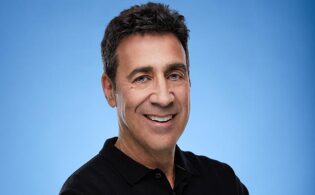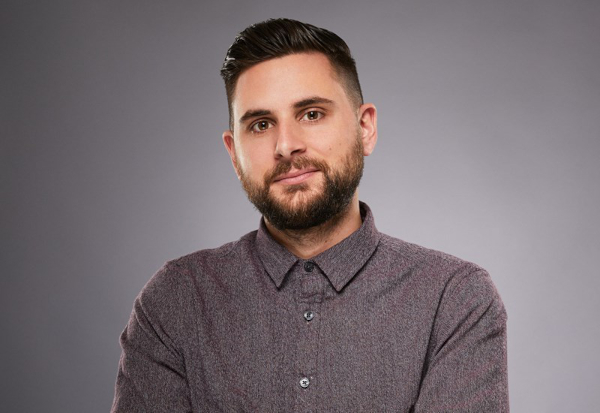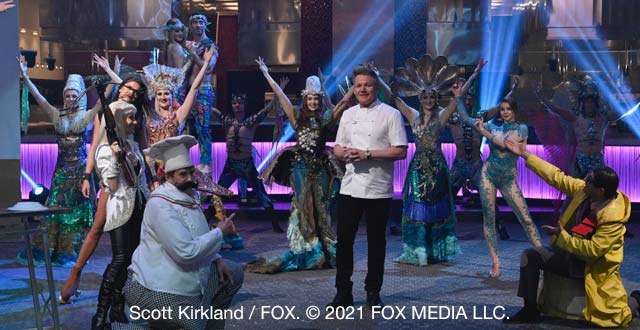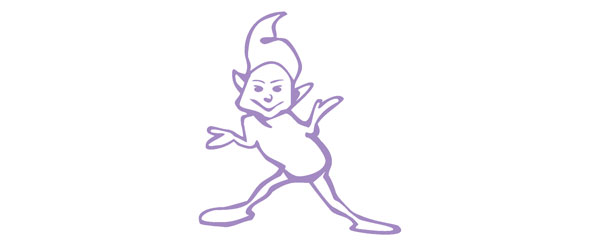Arthur Smith, the chairman and CEO of A. Smith & Co. Productions, offered up a big-picture view of the state of reality television in the U.S. as the TV Real Festival came to a close today.
Smith, whose stable at A. Smith includes Hell’s Kitchen for FOX and American Ninja Warrior for NBC, took part in a keynote conversation with TV Real’s Kristin Brzoznowski that you can watch here.
“The unscripted business is still such a powerful asset for most platforms and a lot of the broadcast and cable channels, but there’s definitely been a shift over the years,” Smith said. “Clearly, broadcast budgets are tighter than they’ve been recently. We all know that. But there’s still buying, just buying at a different level. Budgets are probably down 10 to 15 percent across the board. And it’s up to us as producers to find things that fit into those budget parameters.”
The streaming business helped to boost demand for reality fare, but “the episode orders are smaller,” Smith noted. “Here I am on the set of Hell’s Kitchen. We’re shooting our 24th season. I find it hard to believe that there are going to be shows that are going to go 23 and 24 seasons anymore. We do a fairly chunky order with Hell’s Kitchen and American Ninja Warrior. We’re doing 20 to 30 hours. You don’t see those orders anymore—they are usually 10 or 8. When you’re planning a show, you benefit from a budget standpoint from the amortization of doing a lot of episodes. Now, when you’re planning a big show, you’ve got to figure out how the math works, divided by 8 or 10.”
To maintain longevity on a property like Hell’s Kitchen, constant reinvention is key, Smith noted. For season 23, “for the first time in Hell’s Kitchen, we have head chefs only on the two teams. That dynamic is crazy because we have all those egos in one kitchen. Gordon [Ramsay] has raised the bar, and the quality of the chefs is amazing. This season’s probably the best group of chefs we’ve ever had. When you have a show as long as we’ve had this one, we never get complacent. We’re always trying to think of doing different challenges. We love it when we say, ‘For the first time ever in Hell’s Kitchen….’ We have to say that at least five or six times a season—if we do that, we know we’re doing our job.”
On his overall approach to franchise management, Smith commented, “You never want to completely change the format. You have to think about what the core appeal of the show is, and you always have to protect that. But you have to continue to reinvent and reengage. If it feels like we’ve been there too many times, we’re going to change it. On American Ninja Warrior last year, we put racing into the show. There are new obstacles, and there’s always something new to hang on to. Sometimes it’s in the casting; sometimes it’s in the development of the challenges. We’re always trying to push it to the next step.”
Talking more about American Ninja Warrior, Smith weighed in on adapting that Japanese format for the American market. “Some of the core things are the same, but the obstacle courses and the showmanship that we’ve put into it, we’ve taken it to another level. The show was on in Japan for a number of years. It was only shown in Japan. Now based on the American show, it’s seen in 100 countries. There are some two dozen formats. The show that grew out of the original Sasuke has become the format that people are developing. Sometimes it’s the second generation that becomes the format that travels, not necessarily the first generation.”
When he first saw the format, Smith loved the core idea of “ordinary people trying to do extraordinary things. That’s where I talk about the course being a metaphor for life. Why they run it and what it means to them and their family—if we can dive in there and get people vested in their story, then the course takes on a whole other level.”
The conversation then moved to Smith’s approach to casting. “Every show is different,” he said. “The type of people that we’re looking for on Ninja, there’s the athletics and the story behind it. Anytime I do an ensemble of any kind or a show like Hell’s Kitchen, it’s not only about finding great characters, it’s always about the mix. It’s the chemistry. You have to anticipate how they’re going to interact together. You want your cast to represent what America looks like, too.”
 TVREAL
TVREAL






